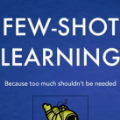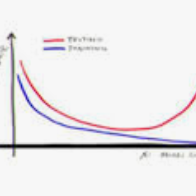Few-shot text classification aims to classify the text under the few-shot scenario. Most of the previous methods adopt optimization-based meta learning to obtain task distribution. However, due to the neglect of matching between the few amount of samples and complicated models, as well as the distinction between useful and useless task features, these methods suffer from the overfitting issue. To address this issue, we propose a novel Adaptive Meta-learner via Gradient Similarity (AMGS) method to improve the model generalization ability to a new task. Specifically, the proposed AMGS alleviates the overfitting based on two aspects: (i) acquiring the potential semantic representation of samples and improving model generalization through the self-supervised auxiliary task in the inner loop, (ii) leveraging the adaptive meta-learner via gradient similarity to add constraints on the gradient obtained by base-learner in the outer loop. Moreover, we make a systematic analysis of the influence of regularization on the entire framework. Experimental results on several benchmarks demonstrate that the proposed AMGS consistently improves few-shot text classification performance compared with the state-of-the-art optimization-based meta-learning approaches.
翻译:微小的文本分类旨在将文本在微小的情景下分类。大多数以前的方法都采用优化的元学习方法来分配任务。然而,由于忽略了对少量样本和复杂模型的匹配,以及这些方法在有用和无用任务特点之间的区分,这些方法受到过份问题的影响。为了解决这一问题,我们提议了一种新的通过梯度相似性(AMGS)来改进模型对新任务的一般化能力。具体地说,拟议的AMGS减轻了基于两个方面的过度配置:(一) 获得样本的潜在语义代表性,并通过内部循环的自上而下的辅助任务改进模型的普通化,(二) 通过梯度类似的利用适应性超高链式元数据,增加对外部循环中基 Learner获得的梯度的限制。此外,我们系统地分析正规化对整个框架的影响。几个基准的实验结果表明,拟议的AMGS始终在改进少数发文本的分类性能,而与以最先进的优化为基础的元学习方法相比。




